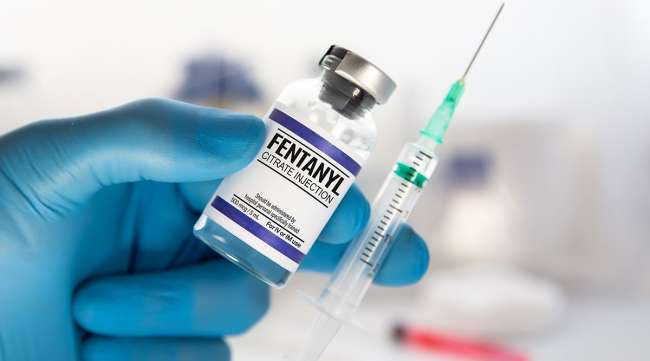
Fentanyl addiction has become a significant issue in Tennessee, with a rise in overdose deaths related to the drug in recent years. Fentanyl, a potent synthetic opioid, is up to 100 times more powerful than morphine and is often mixed with other drugs, making it highly dangerous and addictive. This post will explore the causes and consequences of fentanyl addiction in Tennessee, as well as potential solutions to address this pressing public health concern.
Fentanyl Addiction in Tennessee
Fentanyl addiction in Tennessee is a growing problem that has led to an increase in overdose deaths and strained resources for healthcare and law enforcement agencies. The accessibility and potency of fentanyl, combined with the state’s existing opioid crisis, have created a perfect storm for addiction and overdose. In order to combat this issue, it is essential to understand the root causes of fentanyl addiction and implement targeted interventions to prevent further harm to individuals and communities.
Accessibility: Fentanyl is readily available in Tennessee through illicit channels, such as drug trafficking networks and online markets. Its potency makes it attractive to those seeking a more intense high, but also increases the risk of overdose and addiction. Efforts to curb the supply of fentanyl through law enforcement initiatives and border control measures are essential to reducing its availability and preventing new cases of addiction.
Co-occurring substance use: Many individuals struggling with fentanyl addiction in Tennessee also use other substances, such as heroin or prescription opioids. Polydrug use can exacerbate the effects of fentanyl and increase the likelihood of overdose. Comprehensive treatment programs that address co-occurring substance use disorders are crucial for helping individuals overcome their addiction and regain control of their lives.
Stigma and lack of resources: Stigma surrounding addiction can prevent individuals from seeking help and accessing treatment services. In Tennessee, there is a need for more resources dedicated to addiction treatment and recovery support, especially in rural areas where access to healthcare services is limited. Increasing funding for addiction treatment programs and raising awareness about the dangers of fentanyl can help reduce stigma and encourage more individuals to seek help.
Fentanyl Data for Tennessee
- In 2020, Tennessee reported over 2,000 overdose deaths related to fentanyl, a significant increase from previous years.
- The state has implemented a Prescription Safety Act to track and monitor prescription drugs, but more needs to be done to address the influx of illicit fentanyl.
- Organizations like the Tennessee Department of Mental Health and Substance Abuse Services offer resources and support for individuals struggling with addiction, but these services are often underfunded and overwhelmed.
What is Fentanyl and Where did it Come From
Fentanyl is a potent synthetic opioid that is used medically for pain management, particularly for severe pain such as that experienced by cancer patients. It is up to 100 times more powerful than morphine and has a rapid onset and short duration of action, making it suitable for managing acute pain. Fentanyl works by binding to opioid receptors in the brain and spinal cord, resulting in pain relief and feelings of euphoria.
Fentanyl was first synthesized in the 1960s by a Belgian pharmaceutical company as a pain medication. Since then, it has been used in various forms, including patches, lozenges, and injections, for medical purposes. However, due to its high potency and potential for misuse, fentanyl has also become a popular drug of abuse in recent years.
Illicit fentanyl is often manufactured in clandestine laboratories, primarily in China, and trafficked to the United States through various channels. It is frequently mixed with other drugs, such as heroin or cocaine, without the user’s knowledge, increasing the risk of overdose and death. The accessibility and profitability of fentanyl have contributed to its widespread use and the current opioid crisis in many states, including Tennessee.
Overall, fentanyl is a powerful opioid with both legitimate medical uses and significant risks when misused. Understanding its origins and how it has become a prevalent drug of abuse is crucial in addressing the growing problem of fentanyl addiction in Tennessee and beyond.
How Does Fentanyl Affect the Brain
Fentanyl, like other opioids, affects the brain by binding to specific receptors called opioid receptors. When fentanyl binds to these receptors, it activates the brain’s reward system, leading to the release of dopamine, a neurotransmitter associated with pleasure and reinforcement. This activation of the reward system is what produces the feelings of euphoria and relaxation commonly experienced by individuals who use fentanyl.
In addition to its effects on the reward system, fentanyl also acts on other areas of the brain that are involved in regulating pain perception, mood, and breathing. By binding to opioid receptors in the spinal cord and brainstem, fentanyl can reduce the transmission of pain signals and provide pain relief. However, this same mechanism can also lead to respiratory depression, where breathing slows down significantly, especially at higher doses, increasing the risk of overdose and death.
Repeated use of fentanyl can lead to changes in the brain’s chemistry and structure, resulting in tolerance, dependence, and addiction. Tolerance occurs when the brain becomes less responsive to the effects of fentanyl, requiring higher doses to achieve the same level of pain relief or euphoria. Dependence develops when the brain adapts to the presence of fentanyl and experiences withdrawal symptoms when the drug is discontinued. Addiction is characterized by compulsive drug-seeking behavior despite negative consequences.
Overall, fentanyl’s effects on the brain highlight the complex interplay between pain relief, pleasure, and addiction. Understanding how fentanyl interacts with the brain can help healthcare providers develop more effective treatments for fentanyl addiction and improve outcomes for individuals struggling with substance use disorders.
Detox From Fentanyl
Detoxification, or detox, from fentanyl is the process of clearing the drug from the body and managing withdrawal symptoms that may occur when someone stops using fentanyl. Detox from fentanyl should be done under medical supervision to ensure safety and to provide support for individuals going through withdrawal. Here are some common approaches to detox from fentanyl:
-Medical detox: Medical detox involves receiving care in a supervised setting, such as a detox center or hospital, where healthcare professionals can monitor vital signs, manage symptoms, and provide medications to help ease withdrawal. Medications commonly used during fentanyl detox include buprenorphine or methadone to taper off fentanyl and reduce cravings.
-Tapering: Tapering off fentanyl involves gradually reducing the dose of the drug over time to minimize withdrawal symptoms. This approach can help alleviate the intensity of withdrawal and prevent complications associated with sudden cessation of fentanyl use.
-Supportive care: In addition to medications, individuals undergoing fentanyl detox may benefit from supportive care, such as counseling, therapy, and peer support groups. These services can help address the psychological and emotional aspects of addiction and provide coping strategies for managing cravings and triggers.
-Monitoring and aftercare: Following detox from fentanyl, it is essential to continue monitoring for any lingering withdrawal symptoms and to develop a comprehensive aftercare plan to support long-term recovery. This may include participation in a residential treatment program, outpatient therapy, or ongoing medication-assisted treatment.
It is important to note that detox is just the first step in the recovery process from fentanyl addiction. It is crucial to follow up detox with ongoing treatment and support to address the underlying factors contributing to addiction and to prevent relapse. Seeking professional help from healthcare providers and addiction specialists is key to successfully detoxing from fentanyl and achieving lasting recovery.
In Conclusion
Fentanyl addiction in Tennessee is a complex issue that requires a multifaceted approach to address. By targeting the root causes of addiction, increasing access to treatment services, and raising awareness about the dangers of fentanyl, we can work towards reducing the impact of this epidemic on individuals and communities in the state. It is crucial for policymakers, healthcare providers, and communities to come together to combat fentanyl addiction and save lives.
If you or someone you know is struggling with a chemical dependency issue reach out to Genesis Medical Detox or Magnolia Ranch Recovery today and get started on the path to long-term recovery.








